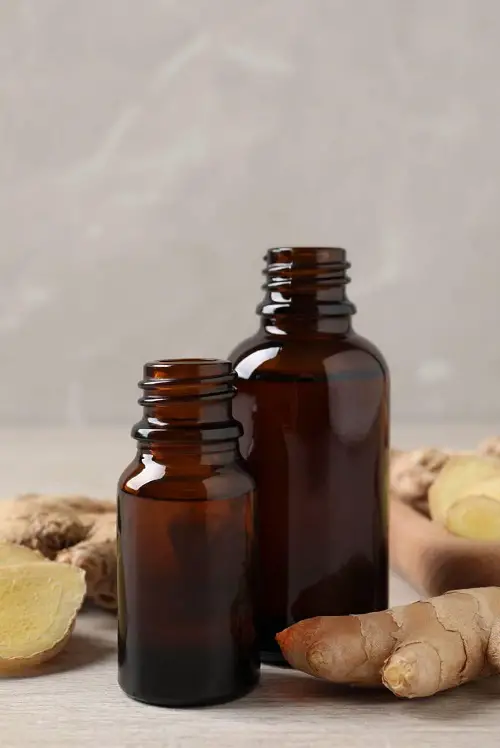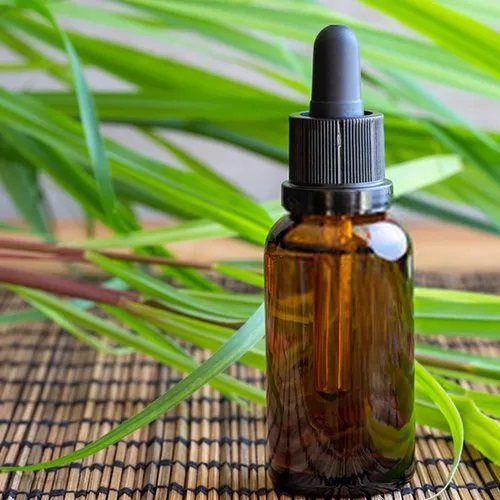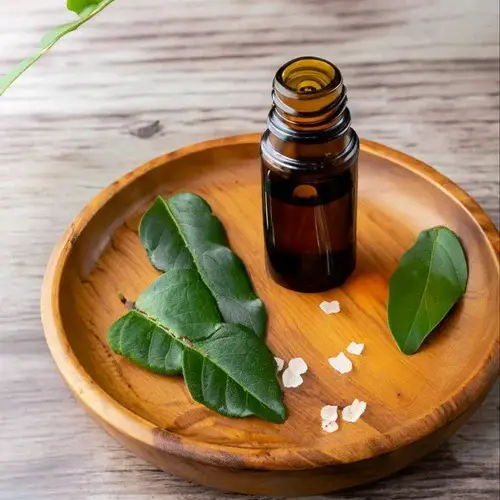Has the nausea gotten you down? This article has a list of essential oils that help relieve nausea!
Essential oils have a wide range of therapeutic benefits, from skin health to internal care. Today, we will discuss the magical benefits of essential oils related to nausea. So, stay tuned to explore more!
Identifying Nausea Root Causes
If you’re experiencing persistent nausea, then it may be happening due to the following reasons:
1. Digestive Problems
Our gut is a complex system, and sometimes things may go awry. In such a condition, an unusual sensation in your digestive tract can send nausea signals to your brain.
2. Motion Sickness
This is a very common reason for nausea. Our inner ear plays an important role in balance. When motion disturbs the delicate ear structures, nausea can kick in easily and may reset equilibrium.
3. Hormonal Disbalance
For women, hormonal fluctuations during pregnancy or menstruation can disbalance the digestive system, leading to nausea as a common symptom.
4. Severe Migraine
When migraines shoot, the complex neurological activity can trigger nausea, headaches, and stomach uneasiness, which results in the worst discomfort.
Note: Temporary solutions are not always the best option. If you are experiencing nausea frequently, then it’s better to consult a doctor to rule out any underlying medical conditions.
Essential Oils That Help Relieve Nausea
A nauseating feeling may dampen your whole day, but you can treat it very easily by just having any of the following bottles of essential oils:
1. Ginger oil
It is a spicy oil that has gingerol as its main component. Ginger oil has been renowned for centuries in traditional medicine for its digestive system-calming effects, reducing inflammation in the gut, and effectively soothing the motion sickness.
2. Spearmint oil
Carvone is a dark horse component in spearmint oils. It is known for its anti-nausea properties, which help settle a queasy stomach and ease feelings of dizziness often associated with nausea.
3. Cardamom oil
This oil has a smart blend of components, including limonene and cineole, both of which contribute to its effectiveness against nausea. Cardamom oil relaxes the digestive muscles, eases discomfort, and can even freshen breath, a welcome benefit when feeling nauseous. It also shows its promising effects when blended with other essential oils.
4. Lavender Oil
Lavender oil directly communicates with your nervous system and enhances your mood. It promotes a feeling of relaxation by reducing nausea and anxiety levels.
5. Peppermint Oil
The cool, minty scent of peppermint oil comes courtesy of menthol, which is a natural muscle relaxant. Peppermint oil can soothe an upset stomach and ease nausea. Inhaling it can also freshen your breath, which can be helpful when feeling nauseous.
6. Fennel Oil
Fennel oil emits a very soothing licorice-like aroma, which contains an anethole that helps in digestion. It can help relieve nausea by relaxing stomach muscles and promoting digestive motility, aiding in the movement of food through the digestive system.
7. Lemon Oil
The limonene component of lemon oil helps lift the mood and settle a queasy stomach. It’s a pocket-friendly oil that emits a refreshing aroma that can ease nausea and promote feelings of well-being.
8. Lemongrass Oil
The anti-inflammatory and digestive properties of lemongrass oil are supported by its secret component, citral. This oil is one of the most sought-after oils to cure anxiety and nausea-related issues.
9. Chamomile Oil
Chamomile oil contains bisabolol and matricin, which work together to relax the muscles in your digestive tract. This can significantly reduce nausea and promote feelings of overall well-being.
10. Camphor Oil
Camphor oil is not a widely used treatment for nausea, but its aroma can surely uplift your living space. The refreshing aroma of camphor oil ultimately gives mental relief. It is important to keep in mind that it is not for internal use. It can only be used in diffusers, too, in a very small amount to prevent its overwhelming effects on the lungs.
Ways To Use Essential Oils For Nausea
1. As Diffusers
Fill your diffuser with water and add 3-5 drops of your choice of nausea-curing oil, like ginger oil or peppermint oil. As the diffuser is turned on, set it back, relax, and inhale deeply. The calming aroma will reach your nose and soothe your anxiety in no time.
2. Topical Application
This method offers sustained relief. But it’s important to always dilute the essential oil before its topical use. The high concentration of these oils may have some side effects. Dilute 2-3 drops of your chosen oil in a tablespoon of carrier oil like jojoba or sweet almond oil. Gently massage the diluted mixture onto your abdomen, wrists, or behind your ear pinnae.
3. Steam Inhalation
This age-old technique delivers a direct hit of nausea-fighting goodness. Boil some water, then carefully pour it into a bowl. Add 1-2 drops of the essential oil of your choice. Drape a towel over your head and create a tent around the bowl. Breathe deeply through your nose for 5–10 minutes, letting the steam carry the oil’s properties to your nasal passages.
4. Bottle Inhalation
Hold the bottle a few inches away from your nose and take slow, deep breaths for several minutes. This allows you to inhale the essential oil vapours without overwhelming your senses.
5. Spray Method
Though this method is not widely used, spray oils may stain the fabrics. But if you don’t have a diffuser and you want to try out this method, then you can spray a little essential oil in some spots of your living space where you mostly live. You can carefully spray on the planters, corners of your carpet, chairs, and tables.
Preventions To Consider
By following the given precautions, you can safely explore the potential benefits of essential oils for nausea relief:
- For topical use, always dilute the essential oils and perform a patch test on your inner elbow to check for sensitivity. If you’re pregnant, breastfeeding, or have any underlying health conditions, consult a healthcare professional before using essential oils.
- While following the bottle inhalation method, do not directly inhale from the bottle, as it can infect other viruses and bacteria in the oil bottle. Transfer the oil to any bowl or petri dish and try it.
- Essential oils are not meant for ingestion. Swallowing them can be toxic, so keep them out of the reach of children and pets.
- The essential oils may offer temporary relief, but they are not a permanent cure or substitute for medical treatment. If your nausea is severe, persistent, or accompanied by other symptoms, consult a doctor to determine the underlying cause.












